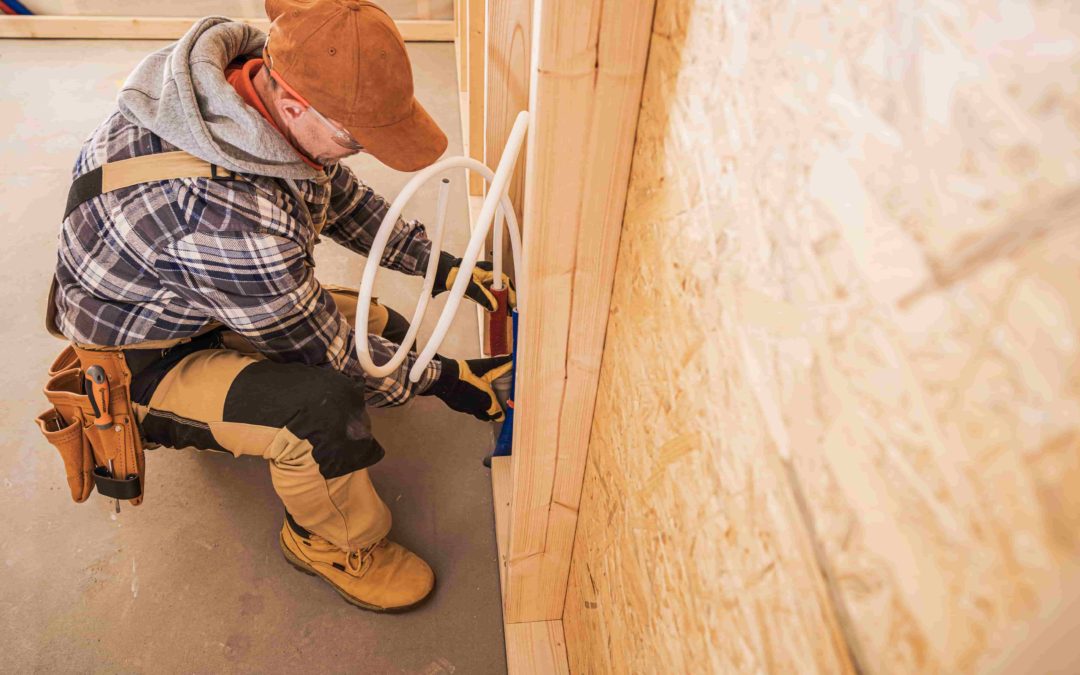One of the most important steps you can take to protect your home this chilly season is to insulate your indoor and outdoor water pipes. As the temperature drops, it’s easy for these pipes to freeze.
Frozen pipes not only prevent you from using water, but they can cause pipes to burst and lead to costly damages. You can experience all four seasons in one day in Virginia, so it can be difficult to know if insulation is right for your pipes if you only need them occasionally.
Luckily for Richmond homeowners, there are many insulation materials designed to adapt to the changing seasons and keep your home safe and efficient. By understanding their specific benefits, you can get the most out of your interior and exterior pipes.
Why Should You Insulate Your Pipes?
Whether you have copper pipes, PVC or PEX, you can benefit from encapsulating them in insulation. Pipe insulation is designed to protect your indoor and outdoor pipes from extreme temperatures, which ultimately keeps your home safe.
During the winter, your pipes can freeze, leaving you without access to water. Your pipes can also burst, leading to severe property damage that you might have to pay out-of-pocket to cover. In the warm summer months, your pipes can “sweat”, or from condensation. When this happens, your home could suffer water damage or greatly reduce your pipe’s efficiency.
Insulated pipes can prevent these issues by maintaining a consistent temperature as water travels throughout your home. By holding onto the right temperature and keeping extreme weather out, you can rely on your water pipes all year long.
Types of Pipe Insulation Material
Pipe insulation is similar to the insulation materials you can find for your attic or outer walls. Pipe insulation is usually sold pre-formed into tube shapes so they can more easily wrap around your pipes. They also might include tape or a wrapping sheet to secure it in place.
When it comes to choosing the right material, it all depends on your type of pipe and your insulation needs.
Foam Insulation
Foam pipe insulation is probably the most common material you’ll find. It’s a fairly inexpensive option that is easy to install thanks to a side slit with a sticky adhesive. It works on both hold and cold pipes and can be applied to PVC or copper.
For the average DIY-er that’s looking to insulate their pipes without breaking the bank, foam insulation maybe your best option. While not as durable or self-containing, this material gets the job done. As long as your willing to replace the insulation every few years, this could be your ideal choice.
Spray Foam Insulation
Spray foam insulation uses a special gun to combine the two components isocyanates and polyol. Simply point the gun where you want the material to go and spray away. The material will stick to the surface and easily spread to fill any crevices.
Spray foam is best suited for low-temperature pipes, keeping them insulated from the outside elements. Luckily, this material is suitable for all climates and works with copper and PVC pipes.
Because of the material’s versatility, spray foam insulation can best be used for pipes that are hard to reach or sit close to the wall. This ensures that the entire pipe system can be insulated rather than only encapsulating the easily accessible portions.
Fiberglass Insulation
Fiberglass pipe insulation comes in wraps equipped with fiberglass and an outer layer of plastic. This plastic layer is designed to trap moisture and preserve warm temperatures. As such, this material is best suited for warm water pipes, especially in colder climates.
By using fiberglass pipe insulation, you can keep your pipes warm throughout the year. This method prevents your pipes from freezing, while the plastic layer keeps pipe condensation from causing water damage in your home. On top of that, this rigid material can also help prevent the formation of cracks and holes in your pipes.
While you can use fiberglass for both your cold and warm pipes, it’s generally recommended you apply this material to copper pipes transporting warm water.
Rubber Insulation
Rubber pipe insulation is one of the most versatile options to regulate your water pipe’s temperature. Not only can be applied to most pipe materials but it’s also designed to naturally expand and contract as the temperature changes.
This feature helps rubber insulation become a solid jack-of-all-trades for homeowners looking to improve their pipe’s safety and efficiency. Overall, it’s a durable option for a fairly low price that you can reasonably rely on throughout the year.
Keep Your Home Safe and Efficient
Insulation for your pipes can save your home from water damage and dangerous situations in the wintertime. They can also keep your water heating and cooling efficiently all year long. Whether you’re encapsulating your outdoor pipes from the elements or preventing damage to your indoor pipes, your Richmond home can benefit from pipe insulation.
When pipe insulation is installed by professionals, you can guarantee its durability and effectiveness. For Richmond homeowners, Mike Wilson is the professional for the job. With decades of experience and a commitment to quality, Mike Wilson and his team can keep your home comfortable and safe.
Contact us to schedule your free consultation.

